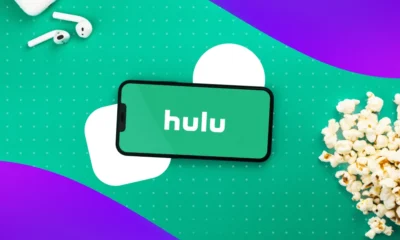AFFILIATE MARKETING
Make money with AI and ChatGPT: 4 affiliate marketing strategies

In the fast-evolving digital world, opportunities for Internet business and income production have grown enormously. Among the many strategies available, affiliate marketing has become one of the most well-liked and successful ways to make money online. Through this type of marketing, anyone may advertise goods or services and earn commissions for each sale they help generate.
Although affiliate marketing has been around for a long time, current developments in artificial intelligence have completely changed what it can do. One such innovation is Chat GPT, a cutting-edge tool that enables people to grasp affiliate marketing like never before.
In this post, we will look at how to master affiliate marketing using Chat GPT and delve into the thoughts of a seasoned digital marketer Jitendra Vaswani.
How Chat GPT Enhances Affiliate Marketing Strategies and Online Income?
Chat GPT’s advanced language model and artificial intelligence capabilities significantly improve affiliate marketing techniques, increasing online revenue. Here are a few ways that Chat GPT helps affiliate marketers boost their online income.
1. Enhanced content creation:
Chat GPT revolutionizes content creation for affiliate marketers by making it simpler and more efficient than ever. Chat GPT produces captivating, high-quality content in various formats, including blog articles, social media updates, product reviews, and email campaigns, because of its sophisticated natural language processing skills.
In addition to keeping the audience interested, this material promotes greater click-through rates, eventually boosting conversion rates. Affiliate marketers can substantially boost their prospects for online income by utilizing Chat GPT’s content-generating capabilities.
2. Intelligent keyword research:
A crucial component of effective affiliate marketing is keyword research, and Chat GPT demonstrates its value in this area. Chat GPT helps businesses optimize their content for search engines by providing clever keyword ideas, examining search trends, and evaluating keyword competition.
This optimization increases their ability to generate online income by bringing highly focused organic traffic to their affiliate links. With Chat GPT’s analytics, affiliate marketers can remain ahead of the competition and guarantee their content connects with their target audience.
3. Personalized Recommendations:
The secret to succeeding in the field of affiliate marketing is personalization. With Chat GPT, marketers can quickly provide personalized recommendations by conversing with customers, learning about their interests, and making specific product or service recommendations. Marketers may offer tailored suggestions that align with user engagements and behavior by utilizing Chat GPT’s capabilities. This personalized approach greatly increases the likelihood of conversions, and the entire user experience is improved, eventually resulting in more success with affiliate marketing projects.
4. Improved Audience engagement:
Driving audience engagement is paramount in achieving success in affiliate marketing. By enabling more dynamic and conversational interactions with their audience, Chat GPT enables marketers to build stronger relationships. Marketers may respond to questions, provide immediate support, and have meaningful interactions with potential consumers by utilizing Chat GPT’s capabilities.
This individualized and participatory method fosters long-lasting relationships, increases audience engagement, and fosters trust. As a result, conversion rates skyrocket, and brand loyalty rises, increasing the total efficacy of affiliate marketing initiatives.
Jitendra Vaswani’s take on using ChatGPT in Affiliate marketing-
Jitendra Vaswani, a renowned person in the digital marketing sector, recognizes the enormous potential of Chat GPT in affiliate marketing. Vaswani claims that Chat GPT offers a ground-breaking method for content optimization and creation that enables affiliate marketers to achieve outstanding results.
Vaswani emphasizes Chat GPT’s capacity to economize time and effort while streamlining the content production process. He says, “Chat GPT allows marketers to easily produce compelling content like blog articles, social media updates, product reviews, and email campaigns by utilizing its natural language processing skills. By doing this, you save time and work and guarantee that the audience will connect with the content, increasing engagement and conversion rates.”
Vaswani further emphasizes that marketers benefit significantly from Chat GPT’s insights into keyword ideas, search trends, and competition research when creating content that aligns with user intent and sends relevant traffic to their affiliate links.
According to him, Chat GPT is a revolutionary technology that allows marketers to improve their content development processes, optimize their advertising campaigns, and eventually increase their online income. Chat GPT gives advertisers a competitive edge with its sophisticated features, enabling them to remain ahead in the constantly changing digital affiliate marketing field.
Conclusion:
ChatGPT provides affiliate marketers with a plethora of alternatives to optimize their campaigns and increase their online income. Marketers can improve their affiliate marketing efforts, generate conversions, and cultivate long-lasting relationships with their audience by utilizing ChatGPT’s capabilities for content development, customer assistance, and personalized suggestions. In the words of Jitendra Vaswani, “Embracing ChatGPT can give you a competitive edge in the affiliate marketing landscape, enabling you to scale your business and achieve sustainable success.”
Remember, mastering affiliate marketing with ChatGPT involves a systematic approach, continual learning, and adaptation to an ever-changing digital scene. You may achieve new heights of profitability and establish yourself as a top affiliate marketer in your field by fusing your marketing know-how with ChatGPT’s features.
(Above mentioned article is consumer connect initiative. This article is a paid publication and does not have journalistic/editorial involvement of IDPL, and IDPL claims no responsibility whatsoever)
AFFILIATE MARKETING
Get Microsoft Office Plus Windows 11 Pro for $70 This Week Only

Disclosure: Our goal is to feature products and services that we think you’ll find interesting and useful. If you purchase them, Entrepreneur may get a small share of the revenue from the sale from our commerce partners.
When you run a company, you need every basic tool available to streamline your communications, content creation, and sales abilities. You also need to operate on a computer outfitted with a capable and robust operating system designed to support modern productivity.
Through 11:59 p.m. PT on May 12th only, you can get The Ultimate Microsoft Office Professional 2021 for Windows: Lifetime License + Windows 11 Pro Bundle on sale for just $69.97 (reg. $438).
Known by many for a long time, Microsoft Office Professional features a suite of apps designed to help you write, present, organize, email, and more. Unlike with Microsoft 365, there are no additional monthly fees with Office. These are the ones included with this lifetime license:
- Access
- Publisher
- OneNote
- Teams
- Outlook
- PowerPoint
- Excel
- Word
This bundle also includes Windows 11 Pro, the latest Microsoft operating system, which offers advanced security features and productivity elements that can help keep any modern professional on task and safe.
On the security front, the system uses tools like Smart App Control, biometric logins, and TPM 2.0 to help keep you protected. When it comes to productivity, it offers tools like improved voice typing and the support of AI-powered tools like Microsoft Copilot. And because Office includes Teams, you get a hub of communication for your team.
This deal has several 5/5 star ratings on the Entrepreneur Store, and Windows 11 Pro is rated 4/5 stars on PC Magazine and TechRadar.
Through 11:59 p.m. PT on May 12th only, you can get The Ultimate Microsoft Office Professional 2021 for Windows: Lifetime License + Windows 11 Pro Bundle on sale for just $69.97 (reg. $438).
StackSocial prices subject to change.
AFFILIATE MARKETING
8 Common SEO Myths Debunked

Opinions expressed by Entrepreneur contributors are their own.
In today’s digital landscape, a strong Search Engine Optimization (SEO) strategy is crucial for businesses to thrive. SEO helps websites rank higher in search engine results pages (SERPs), driving organic traffic and boosting online visibility.
However, the world of SEO is also riddled with myths and misconceptions that can lead businesses astray. Let’s debunk some of the most common SEO myths and separate fact from fiction.
Myth 1: More keywords mean better rankings
Gone are the days of stuffing your content with every keyword imaginable. Google’s algorithms have shifted towards natural language processing (NLP), prioritizing content quality and user experience above keyword density. While keywords remain important, focusing on keyword intent and strategic placement throughout your content is far more beneficial than keyword quantity.
Fact: Research relevant keywords related to your target audience and their search queries. Use those keywords naturally within your content, focusing on providing informative and engaging information that fulfills user intent.
Related: Ultimate SEO Guide On How to Get 100,000 Visits Per Month From Google
Myth 2: Meta tags don’t matter anymore
While meta tags may not hold the same weight they once did, they’re far from irrelevant. Title tags and meta descriptions are like billboards for your content, serving as the first impression users see in search results. Compelling and informative meta tags can significantly improve click-through rates (CTR) and user engagement.
Fact: Craft clear, concise, and keyword-rich title tags that accurately reflect your content. Similarly, write engaging meta descriptions that entice users to click. Keep your title tag under 60 characters and your meta description around 160 characters to ensure they display fully in search results.
Myth 3: Social media directly influences SEO rankings
Social media shares and likes don’t directly translate into higher search rankings. However, social media plays a vital role in online visibility and brand awareness. Strong social media engagement can drive traffic back to your website, indirectly contributing to SEO by increasing user engagement and potentially influencing click-through rates.
Fact: Utilize social media platforms to share your content and connect with your audience. Encourage social media followers to share your content further, expanding your reach and driving more visitors to your website.
Myth 4: Backlinks are no longer relevant
Backlinks, or links from other websites to yours, remain a cornerstone of SEO. High-quality backlinks from reputable websites act as a vote of confidence for your content, signaling to search engines that your site is trustworthy and authoritative. This can significantly boost your domain authority and improve search rankings for relevant keywords.
Fact: Focus on acquiring backlinks from relevant websites within your niche. Create high-quality content that others will find valuable and link to naturally. Avoid spammy link-building tactics, as they can actually harm your SEO efforts.
Related: 9 SEO Tips to Help You Rank No. 1 on Google in 2024
Myth 5: SEO is a one-time effort
If you think you can optimize your website once and reap the benefits forever, think again. Search engines constantly update their algorithms, and SEO is an ongoing process. To maintain strong search rankings, you need to stay on top of SEO best practices.
Fact: Regularly update your website content with fresh, informative, and engaging material. Review your keyword strategy periodically and adapt to changes in the search landscape. Stay updated on the latest SEO trends and best practices to ensure your website stays relevant.
Myth 6: Mobile optimization doesn’t matter
With the majority of web searches now conducted on mobile devices, having a website that’s optimized for mobile browsing is no longer optional. Search engines prioritize mobile-friendly websites in search results, ensuring users have a positive experience when accessing your content.
Fact: Make sure your website has a responsive design that adapts seamlessly to different screen sizes and devices. Ensure fast loading times and easy navigation for mobile users.
Myth 7: Paid advertising can replace SEO
While paid advertising (PPC) can be a valuable tool to drive immediate traffic, it’s not a replacement for SEO. The benefits of SEO are long-term and sustainable, with organic traffic continuing to flow to your website even without ongoing ad spend.
Fact: Develop a strong SEO strategy alongside your paid advertising efforts for a well-rounded digital marketing approach. Organic traffic can provide a more cost-effective source of website visitors in the long run.
Myth 8: Focusing on local SEO doesn’t matter if I sell online
Even for e-commerce businesses, neglecting local SEO can be a missed opportunity. If you have a physical location or offer local delivery, optimizing your website for local search terms can significantly increase your visibility to potential customers in your area.
Fact: Claim and manage your Google My Business listing to ensure your business information is accurate and up-to-date. Utilize location-specific keywords throughout your website content and target local search queries.
Conclusion
Staying informed about SEO best practices is crucial for optimizing your website and achieving success in the digital marketplace. Don’t be swayed by outdated myths or quick-fix SEO schemes. Focus on creating high-quality content, building a strong backlink profile, and staying updated on the latest SEO trends.
AFFILIATE MARKETING
Most Employees Are Secretly Using AI Tools At Work: Report

Most people are using AI at work, whether their bosses know about it or not. Meanwhile, company leaders are simultaneously looking for non-technical talent with AI skills.
A new joint report from LinkedIn and its parent company Microsoft released Wednesday revealed the almost contradictory state of AI at work, as employees discreetly use AI tools and employers seek out candidates with those skills without the majority investing in internal training or tools.
The survey took in responses from 31,000 people across 31 countries between February and March drawing from research that Microsoft conducted with its Fortune 500 customers to add an employer dimension to the survey.
Company leaders showed in the survey that they overwhelmingly favored job candidates with AI skills, even non-technical talent that could use generative AI like ChatGPT.
In the report, 66% of the leaders stated that they would not hire someone who didn’t have AI skills and 71% said that they would probably hire a less experienced candidate with AI skills over a more experienced one without them.
Related: These 4 Words Make It Obvious You Used AI to Write a Paper, According to New Research
Despite employer demand for AI knowledge, lower percentages have provided AI training (39%) or invested in AI tools (45%) for employees.
Regardless of whether employers provide training, more employees than ever have adopted AI tools and are reaping the productivity benefits, even as they fear losing their jobs to the technology.
Three in four knowledge workers, defined in the study as employees who work from a desk, use AI to help get things done at work. The main reason 90% of these respondents reported using AI was to save time.
About half of the group (46%) that use AI recently started using it, within the past six months, and the majority of them (78%) are using AI tools at work “without guidance or clearance from the top.”
At small and medium-sized companies, the percentage of workers taking this “bring your own AI” approach is even higher: 80% of employees use AI discreetly, without a go-ahead from higher-ups.
The trend applies across generations — 73% of boomers and 85% of Gen Z reported using AI tools not provided by their companies.
Related: JPMorgan Says Its AI Cash Flow Software Cut Human Work By Almost 90%
At the same time, about half of the employees (45%) said they were worried that AI could replace their jobs.
Companies, like $7 billion “Buy Now, Pay Later” Klarna, have indicated that AI would pick up the responsibilities of laid-off workers. Klarna stated in February that its AI chatbot “is doing the equivalent work of 700 full-time [customer service] agents.”
The reason why employees are turning to AI tools, despite fears of AI replacing them, could be that they are dealing with higher workloads. The majority surveyed in the report (68%) stated that they find it hard to keep up with the amount of work they have to get done. Nearly half (46%) report feeling burned out.
“The data is clear: People are overwhelmed with digital debt and under duress at work— and they are turning to AI for relief,” the report reads. “The opportunity for every leader is to channel this momentum into ROI.”
-

 MARKETING7 days ago
MARKETING7 days agoHow Tagging Strategies Transform Marketing Campaigns
-

 SEARCHENGINES6 days ago
SEARCHENGINES6 days agoThe Industry Mourns The Loss Of Mark Irvine
-

 MARKETING6 days ago
MARKETING6 days agoThe key to correcting the C-suite trust deficit
-

 AFFILIATE MARKETING7 days ago
AFFILIATE MARKETING7 days agoStay Focused and Accessible with These $40 Conduction Headphones
-

 MARKETING5 days ago
MARKETING5 days agoA Recap of Everything Marketers & Advertisers Need to Know
-

 SEO7 days ago
SEO7 days agoWhat Is Social Listening And How To Get Started
-

 SEO6 days ago
SEO6 days ago128 Top SEO Tools That Are 100% Free
-

 MARKETING3 days ago
MARKETING3 days agoHow To Protect Your People and Brand















